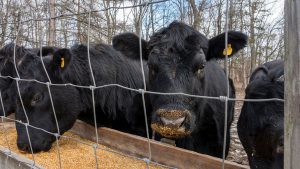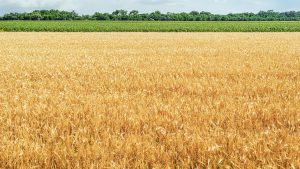Farm corporations
CONVERSATIONS WITH BUSINESS EXPERTS

(J.M.) WHAT ADVICE CAN YOU OFFER FARMERS WHEN IT COMES TO FARM BUSINESS STRUCTURES?
(J.M.) Establishing the right business structure that works for your farm is important for many reasons, and tax planning is one of them. Whether the business structure is sole proprietor, partnership, or corporation, taxes, bookkeeping and consulting a trusted accountant should all be part of a business plan. Consult your farm business advisor team — including lawyers, accountants, and financial advisors to explore all your options for establishing the right business structure for your farm.
WHAT DO FARMERS NEED TO KNOW ABOUT TAX PLANNING FOR CORPORATIONS?
Corporations are becoming more common, especially with grain farms as they grow in size and acquire more and/or larger assets. One specific area of growing concern is farm corporations that own ‘non-farming’ assets such as excess cash, portfolio investments, rental property, and/or loans to ‘non-farming’ corporations or other entities. The reason is, the value of these non-farming assets could prevent access to both the Lifetime Capital Gains Exemption (LCGE) and the rollover rules for farm property — where certain kinds of farm property can be transferred to the next generation without triggering a significant income tax liability. This is a concern because it can have serious implications for estate and/or succession planning. In these situations, we recommend ‘purification’ strategies to remove non-farming assets in a tax-effective manner, and therefore preserve access to both the LCGE and rollover rules.
In the past, farmers were primarily focused on LCGE access, since it would cover most, if not all of the gains associated with their farm property. These days, access to the rollover rules is becoming more important as the value of farm assets and farm businesses increase and exceed the LCGE.
ANY TAX PLANNING TIPS FOR INCORPORATED FARM BUSINESSES?
One strategy that is becoming more important as incorporated farm businesses grow in size, particularly grain farms, is making use of the ‘optional inventory adjustment’ (OIA) to preserve access to lower corporate tax rates.
Currently, a Canadian-controlled private corporation carrying on a farming business has access to a low annual corporate rate of tax on the first $500,000 of its farming profits — 12.2 per cent in Ontario (2020). However, when a corporation gets ‘too big,’ the corporate tax rate can more than double, reaching 26.5 per cent. This occurs when a corporation’s ‘taxable capital’ (generally retained earnings and long-term debt) exceeds $10 million. Access to the low corporate rate is lost altogether when taxable capital reaches $15 million.
Although these are not small dollars, as the cost of farmland, equipment, and inputs increases, and larger operations consolidate and grow, farm corporations are increasingly reaching and exceeding these limits and triggering higher corporate tax.
The planning strategy in this case, is to utilize the OIA, and tax more of the corporation’s inventory at lower tax rates, before access to the lower rates is lost altogether — this is only possible with proactive tax planning. This type of planning can be just as important for unincorporated farmers who are just starting out or nearing retirement — the idea here is to ‘smooth’ their income out and ultimately pay the lowest rate of tax on their inventory. •





















